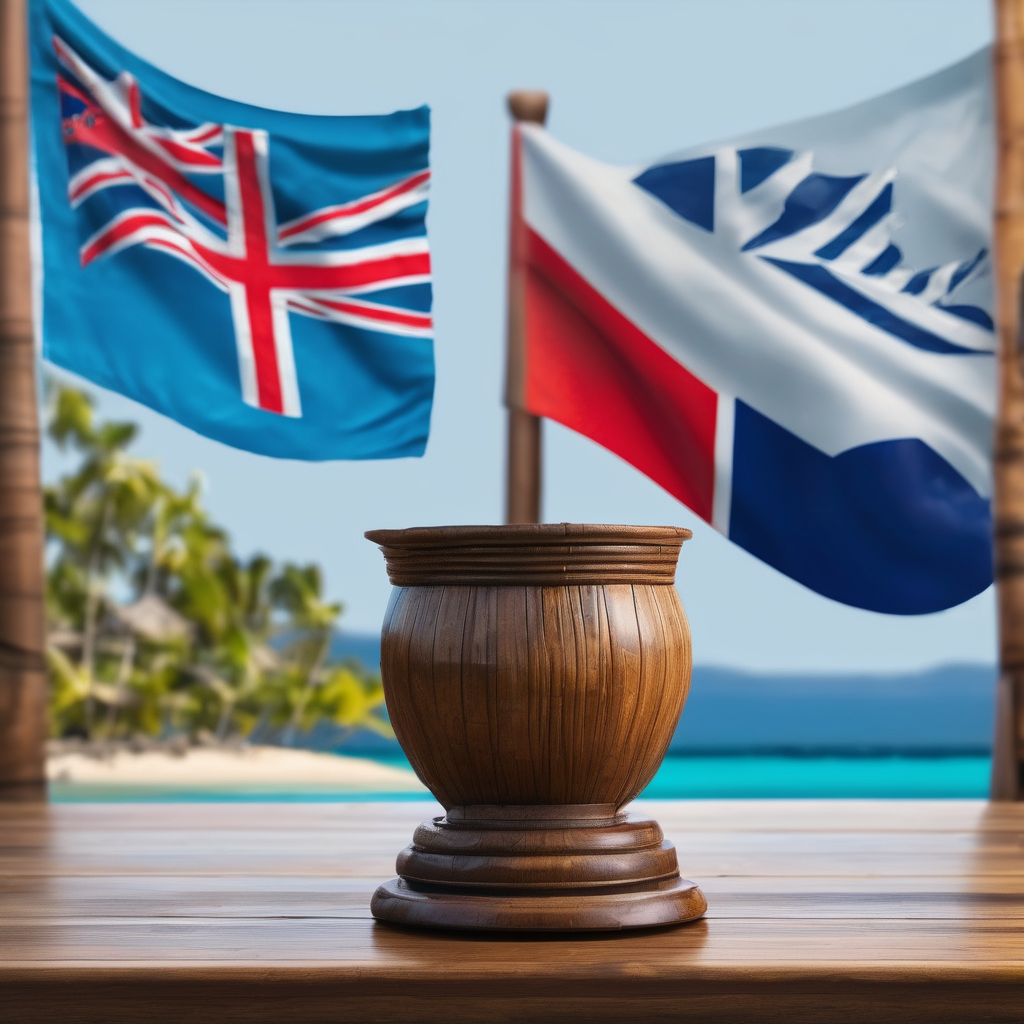Tessa McKenzie, co-designer of the Fiji flag, has voiced her concerns regarding the recent usage of the national flag, emphasizing that it deserves to be treated with dignity and respect due to its significance in representing the nation’s history and unity. Her remarks come in light of public outcry over a social media post by the Fiji Government, which featured the flag draped over a table during a Fiji Day dinner, with food trays resting upon it. McKenzie expressed her surprise and slight offense about the portrayal, yet acknowledged that the enthusiasm surrounding the flag stems from a deep sense of national pride.
“A flag is a national emblem, and it should not be used for anything other than celebrating or, in the context of a funeral. It’s a national emblem — it shouldn’t be misused in trivial ways, like on cars or tablecloths,” she stated. Although some flag-inspired designs, such as on shirts or sarongs, are visually appealing, she noted that others were less tasteful.
McKenzie reflected on Fiji’s political challenges over the years, suggesting that the flag symbolizes resilience and hope: “We’ve made mistakes, but we must have hope. As a Christian, I know God will not give up on us.”
Rewa chief Ro Naulu Mataitini echoed McKenzie’s sentiments, asserting that the treatment of the flag reflects a society’s values. “A flag is much more than a piece of colored cloth. It is a powerful symbol of a country’s identity, history, and independence,” he highlighted, emphasizing the importance of maintaining its dignity. Many nations, including Fiji, have laws to protect the flag’s status; however, prominent lawyer Richard Naidu pointed out that no formal regulations currently govern the use of the Fiji flag, citing the incomplete status of the 2015 National Flag Protection Act.
While the discussion continues, the need for a legal framework to protect the flag has been underscored as a matter for both the people and the government. This ongoing debate about national identity and emblematic representations reflects broader conversations in Fiji regarding governance, society, and the fostering of unity among its citizens. Such national discussions can inspire a renewed commitment to cultural and historical values while promoting respect and pride in national symbols.
